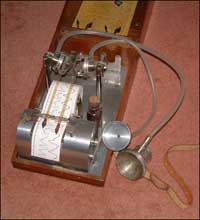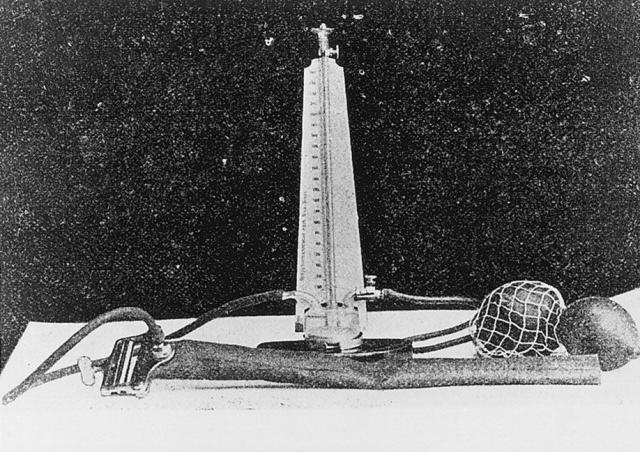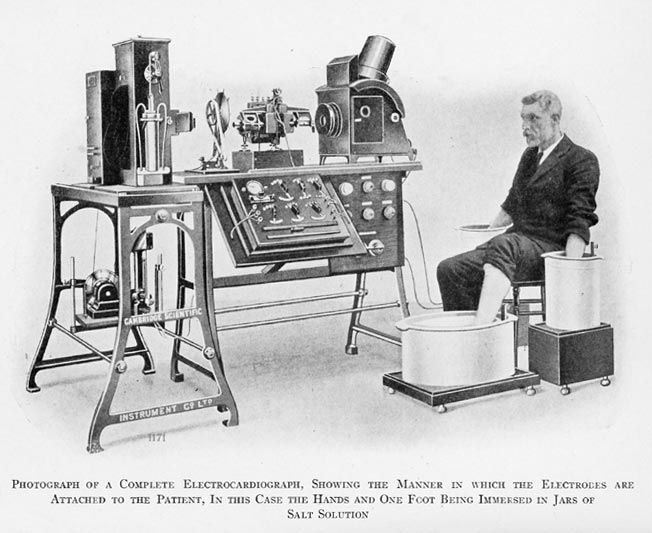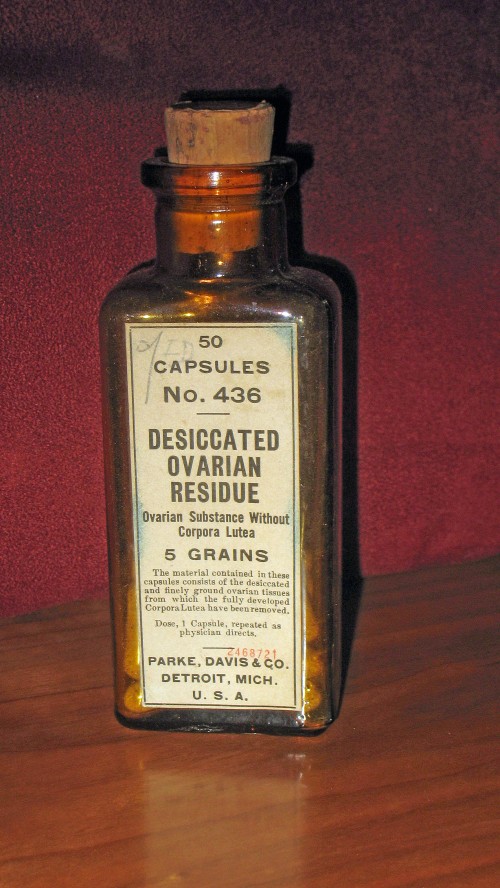Winner of an Independent Publisher Books Award Bronze Medal for 2017, Paul Stepansky’s In the Hands of Doctors: Touch and Trust in Medical Care is now available in paperback and as an eBook. For the paperback edition, Stepansky has written a new preface, a stirring defense of Obamacare as a path to universal health care in America. It is given here in its entirety in appreciation of the readers of “Medicine, Health, and History.”
Now, less than a year after publication of In the Hands of Doctors, the Patient Protection and Affordable Care Act of 2010 (aka Obamacare), which I roundly endorse in this book, is gravely imperiled. Congressional Republican legislators have joined a Republican President in a commitment to repeal the bill that has provided health insurance to over 20 million previously uninsured Americans. The legislation thus far presented to replace it by the U.S. Senate (the “Better Care Reconciliation Act of 2017”) would, according to the Congressional Budget Office, leave 15 million Americans uninsured in 2018 and 22 million by 2026. Proposed cuts and caps to the Medicaid budget, which are part of the legislation, would, according to the CBO, decrease enrollment in the program by 16% over the next decade. In brief, these cuts and caps would jeopardize the health and well-being of the one in five Americans and one in three American children dependent on the support provided by Medicaid. Disabled and other special-needs children as well as elderly nursing home residents would suffer the most. A Congressional vote simply to repeal Obamacare absent new legislation would have even more catastrophic consequences.
Congressional opponents of the Affordable Care Act, no less than President Donald Trump, appear to live in a hermetically sealed bubble that makes only grazing contact with the socioeconomic ground below. They share space in the bubble with colliding political abstractions that they grasp, one after the other, and radio back down to earth. The political bubble dwellers offer us yet again the palliatives of context-free “medical choice” and “medical freedom” as remedies for the real-world suffering addressed by Obamacare.
But these terms, as used by politicians, do not speak to the realties of American health care in 2017. Rather, they hearken back to the era of the Founding Fathers, when issues of health, illness, freedom, and tyranny were much simpler. Freedom, as the founders understood it, operated only in the intertwined realms of politics and religion. How could it be otherwise? Medical intervention did not affect the course of illness; it did not enable people to feel better and live longer and more productive lives. With the exception of smallpox inoculation, which George Washington wisely made mandatory among colonial troops in the winter of 1777, governmental intrusion into the health of its citizenry was nonexistent, even non-sensical.
Until roughly the eighth decade of the nineteenth century, you got sick, you recovered (often despite doctoring), you lingered on in sickness, or you died. They were the options. Medical freedom, enshrined during the Jacksonian era, meant being free to pick and choose your doctor without any state interference. So liberty-loving Americans picked and chose among mercury-dosing, bloodletting “regulars,” homeopaths, herbalists, botanical practitioners, eclectics, hydropaths, phrenologists, Christian Scientists, folk healers, and faith healers. State legislatures stood on the sidelines, rescinding or gutting medical licensing laws and applauding the new pluralism. It was anarchy, but anarchy in the service of medical freedom of choice.
Now, mercifully, our notion of medical freedom has been reconfigured by two centuries of medical progress. We don’t just get sick and die. We get sick and get medical help, and, mirabile dictu, the help actually helps. In antebellum America, deaths of young people under 20 accounted for half the national death rate, which was more than three times the death rate today. Now our children don’t die of small pox, cholera, yellow fever, dysentery, typhoid, and pulmonary and respiratory infections before they reach maturity. When they get sick in early life, their parents take them to the doctor and they almost always get better. Their parents, on the other hand, especially after reaching middle age, don’t always get better. So they get ongoing medical attention to help them live longer and more comfortably with chronic conditions such as diabetes, coronary heart disease, inflammatory bowel disease, Parkinson’s, and many forms of cancer.
When our framers drafted the Constitution, the idea of being free to live a productive and relatively comfortable life with long-term illness did not compute. You died from diabetes, cancer, bowel obstruction, neurodegenerative disease, and major infections. Among young women, such infections included the uterine infection that routinely followed childbirth. A major heart attack simply killed you. You didn’t receive dialysis and possibly a kidney transplant when you entered kidney failure. Major surgery, performed on the kitchen table if you were of means or in a bacteria-infested public hospital if you were not, was rarely attempted because it invariably resulted in massive blood loss, infection, and death.
So, yes, our framers intended our citizenry to be free of government interference, including the Obamacare “mandate” that impinges on Americans who choose to opt out of the program. But then, with the arguable exception of Benjamin Franklin, the framers never envisioned a world in which freedom could be extended by access to expert medical care that relieves suffering, often effects cure, and prolongs life. But then, neither could they envision the enfranchisement of former slaves and women, the progressive income tax, compulsory vaccination, publicly supported health clinics, mass screening for TB, diabetes, and syphilis, or Medicare and Medicaid. Throughout the antebellum era, when physicians were reviled by the public and when neither regular medicine nor the rival alternative sects could stem the periodic waves of cholera, yellow fever, and malaria that decimated local populations, it mattered little who provided one’s doctoring. Many, like the thousands who paid $20.00 for the right to practice Samuel Thomson’s do-it-yourself botanical system, chose to doctor themselves.
Those who seek repeal of Obamacare without a credible legislative alternative that provides equal, preferably greater, health benefits to all Americans seem challenged by the very idea of medical progress. Their use of terms like “choice” and “freedom” invokes an eighteenth-century political frame of reference to deprive Americans of a kind of freedom associated with a paradigm-shift that arose only in the final quarter of the nineteenth century. It was only then that American medicine began its transition to what we think of as modern medicine. Listerian antisepsis and asepsis; laboratory research in bacteriology, immunology, and pharmacology; laboratory development of specific remedies for specific illnesses; implementation of public health measures informed by bacteriology; modern medical education; and, yes, government regulation to safeguard the public from incompetent practitioners and toxic medications – all were part of the transition. The Jacksonian impulse persisted into the early twentieth century, flaring up in organized opposition to compulsory childhood vaccination, and finally petering out in the 1930s, by which time it was universally accepted that scientific medicine was, well, scientific, and, as such, something more than one medical sect among many.
“We hold these truths to be self-evident,” Thomas Jefferson began the second paragraph of the Declaration of Independence, “that all men are created equal, that they are endowed by their Creator with certain unalienable Rights, that among these are Life, Liberty and the pursuit of Happiness.” What Jefferson did not stipulate, indeed what he could not stipulate in his time and place, were the hierarchical relationships among these rights. Now, in the twenty-first century, we are able to go beyond an eighteenth-century mindset in which “Life, Liberty, and the pursuit of Happiness” functioned as a noun phrase whose unitary import derived from the political tyrannies of King George III and the British parliament. Now we can place life at the base of the pyramid and declare that quality of life is indelibly linked to liberty and the pursuit of happiness. To the extent that quality of life is diminished through disease, liberty and the pursuit of happiness are necessarily compromised. In the twenty-first century, health is life; it is life poised to exercise liberty and pursue happiness to the fullest.
Why, then, is it wrong to require all citizens to participate in a national health plan, either directly or through a mandate (i.e., a tax on those who opt out), that safeguards the right of people to efficacious health care regardless of their financial circumstances, their employment status, and their preexisting medical conditions? What is it about the Obamacare mandate that has proven so troubling to our legislators? When you buy a house in this country, you pay local property taxes that support the local public schools. These taxes function like the mandate: They have a differential financial impact on people depending on whether they directly benefit from the system sustained by the tax. To wit, you pay the tax whether or not you choose to send your children to the public schools, indeed, whether or not you have children at all. You are obligated to subsidize the public education of children other than your own because public education has been declared a public good by the polity of which you are a part. The same goes for that portion of local taxes that provides police and fire protection. We accept a mandate to support policemen and firefighters whether or not we will ever need them, in the knowledge that other members of the community assuredly will. Similarly, those who opt out of Obamacare should pay a price, because they remain part of a society committed to health as a superordinate value without which liberty and the pursuit of happiness are enfeebled.
It is inconceivable that the Founding Fathers would have found unconstitutional or unfair or governmentally oppressive a law that provided life-promoting health care that enabled more Americans to discharge the duties of citizenship and live more freely and productively in pursuit of happiness. They declared that citizens – all of whom, be it noted, were white, propertied males – were entitled to life consistent with the demands and entitlements of representative democracy. Their pledge, their declaration, was not in support of a compromised life that limited the ability to fulfill those demands and enjoy those entitlements.
When, in our own time, the word “choice,” as used by Republican politicians, means that millions of Americans who rely on Obamacare will end up leading compromised lives, the word becomes semantically contorted and ethically bankrupt. The absence of Obamacare does not, ipso facto, empower lower-income, assistance-dependent Americans to buy the comprehensive health insurance they need, especially when the tax credits under legislation proposed thus far provide far less support than the subsidization lower-income families now receive. Freeing insurers from Obamacare regulations so that they can offer inadequate policies that lower-income Americans can afford to buy does nothing but maximize the medical risks of these financially choice-less Americans. Here is a fact: Economic circumstances wipe out the prerogative to make prudent choices in one’s own best interest. For lower-income Americans, a panoply of inadequate choices is not the pathway to right-minded decision making. With the Senate’s “Better Care Reconciliation Act,” unveiled in June and updated in July, 2017, millions of low-income Americans, especially those dependent on Obamacare subsidies and Medicaid, would have had an absence of credible and affordable choices for obtaining health care adequate to their needs. The call simply to repeal the Affordable Care Act, which the Senate has rejected as of this writing, would take us back to a status quo ante when millions of Americans were either priced out of, or completely denied, health coverage.
Of course, adult citizens may repudiate mainstream health care altogether on the basis of philosophical or religious predilections. Christian Scientists and Jehovah’s Witnesses, for example, hold theological beliefs that often lead them to refuse medical treatment. Certainly, they are free to pursue health through spiritual healing or, in the manner of medieval Christians, to disavow corporeal health and earth-bound life altogether. But by law they cannot deny their children, who deserve to live to maturity and make their own choices, the healing power of modern medicine, whether it comes in the form of insulin, antibiotics, blood transfusions, or surgery. Nor should they be allowed to undermine social and political arrangements, codified in law, that support everyone else’s right to pursue life and happiness through twenty-first century medicine. Those who, prior to the Affordable Care Act, had inadequate insurance or no insurance at all are not struggling to free themselves from the clutches of federal regulation; they are not crying out for new free market health plans through which they can exercise freedom of choice. Rather, they are struggling to put food on the table and keep themselves and their families healthy. To this end, they need to be free to avail themselves of what modern medicine has to offer, unencumbered by politically debased notions of freedom and choice.
At this moment in history, in a fractionated society represented by a President and Congressional leaders whose daily missives bear out George Orwell’s acute observation about the corruption of language brought on by political orthodoxies, In the Hands of Doctors may have a wistful ring. I hope not. I am addressing the personal side of health care – the reality of a doctor and patient, alone in a consulting room, often surrounded by high-tech diagnostic aids but always containing those vital low-tech instruments with which one person reaches out to the other: the physician’s eyes and hands and voice. The human face of doctoring, which now includes the doctoring of nurse practitioners and physician assistants, remains essential to the success of any doctor-patient relationship, whatever the institutional arrangements that bring together this doctor and this patient, the former to help the latter.
Endeavoring to understand the several aspects – and possibilities – of the doctor-patient relationship, I write about the nature of clinical caring; the relation between caring and patient trust; the need to recruit and train physicians who can bring this caring sensibility to their patients; the role of empathy in medical caring; and the obligation of medical educators to revivify primary care medicine to meet the critical shortage of frontline physicians within underserved American communities. These issues will not go away, whatever the fate of Obamacare.
When federal legislation, through the practical assistance it provides, extends the reach of trusting doctor-patient relationships to the most vulnerable groups in society, it has a function that is both binding and enabling. It fortifies the webbing that underlies the increasingly disparate parts of our national mosaic. Obamacare, the Children’s Health Insurance Program, Medicaid – these programs do not “bring us together” in a feel good way. They do, however, prevent a free fall in which the subcommunities and interest groups into which society has decomposed land so far apart they are no longer in hailing distance of one another. As to the enabling function, a comprehensive medical safety net for all Americans – let’s call it what it is: universal health care – revitalizes political democracy by extending to all Americans a greater possibility of life, liberty, and the pursuit of happiness. In the everyday world, this pursuit boils down to the ability of more people to stay on the job or to work from home rather than not work at all. Society benefits, since chronically ill people pursuing happiness under the umbrella of universal health care will better resist the complications and collateral illnesses that follow from their primary illness or illnesses. Society also benefits by enabling healthier happiness-pursuers to avoid hospitalization and, among the elderly, to push back the time when nursing home care is required. And finally, society benefits by seeing to it that all children, especially those who are disabled, receive every medical advantage as they traverse their own challenging paths to productive, choice-wielding citizenship.
Obamacare is a far cry from universal health care, but for all its limitations and current financial straits, it has provided these binding and enabling functions for millions of Americans previously without a medical safety net. Woe to politicians who shred it in the name of choice, a pleasing vacuity that evades the reality of disease and pain among many who are relieved to have a single avenue of subsidized care where none was previously available.
Health care should be a national trust; everyone deserves what twenty-first century medicine has to offer, regardless of how much or how little choice can be worked into the offering. Politicians who feel otherwise are enemies of the polity. Jefferson, who as president helped set up the first smallpox vaccination clinics in the south and then, in retirement, planned a state-supported clinic to provide free medical care to those who could not afford it, would not have brooked the empty insistence that medical freedom and medical choice, unhinged from socioeconomic reality, trump access to medical care per se. Nor, for that matter, does choice, whatever it may or may not mean, obviate our moral obligation as a society to see to it that best available treatment, whatever the pathway that leads to it, means treatment rendered by caring doctors willing to know their patients as people.







